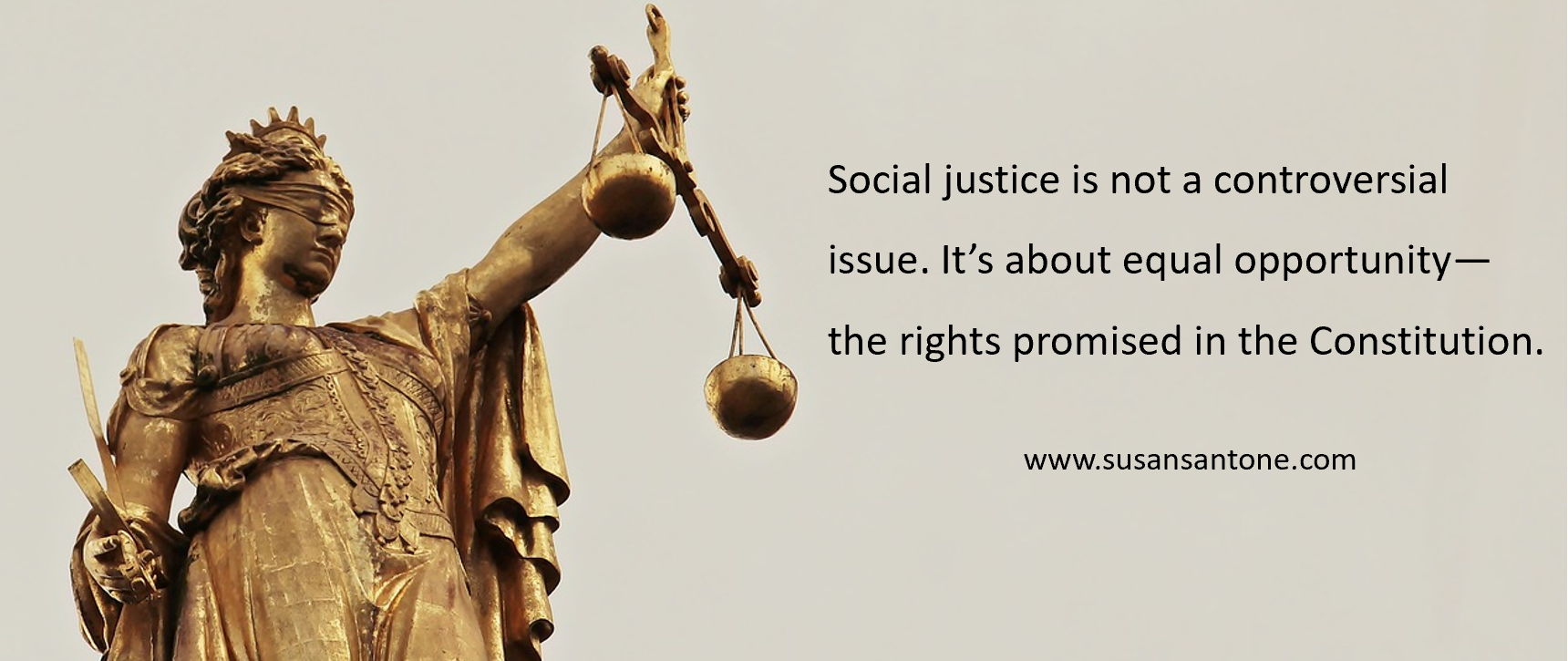“If we advocate for social justice, aren’t we just indoctrinating people? Isn’t that political?”
I hear this question from educators and community leaders who are eager but hesitant to bring a social justice lens to their work.
A key pillar of social justice is equal opportunity. This is not a controversial issue; it’s in the Constitution. Social justice is democratic, not Democratic. Educators and leaders must advocate for equal opportunity; to stay silent or turn the other way is tacit approval for injustice. Likewise, “neutrality” is a myth. The decision about which issues, facts, and perspectives to introduce rests upon values and assumptions. Whose story is presented? Why? What is included or omitted? While we can and must make space for a range of views, we cannot pretend that these views exist in a valueless vacuum.
Advocacy or indoctrination?
But where is the line between advocacy for democratic values and indoctrination? Is facilitating a discussion about a “political” issue the same as "taking a side?" Of course not. But in today's charged climate, this distinction gets lost and people retreat from the challenge of having the conversations society needs us to have. And while it can be confusing to differentiate between advocacy and editorializing, the distinction is critical: The former is a civic obligation; the latter squelches critical thinking. Let me share an example from my own teaching.
On Wednesday, November 9th, 2017 at 9am—just hours after the election of Donald Trump—I walked into my undergraduate Social Foundations of Education class to find most of my students, including three Muslims, looking shell-shocked. One student, a white female, shrugged and said, “Hell, I voted for Trump.”
I neither took a side nor shared how I voted; spouting my views would not have sharpened my students’ critical thinking skills. However, I did not ignore the election on the belief I must be “neutral.” Instead, I did two things: First, I brought the discussion back to the shared values we’d been studying all semester: equity, the common good, human dignity, and the well-being of children. Second, I reminded students of their professional responsibility to stand up for these values. That means considering if or how the new administration would carry out these values through policy and practice. While I clearly took a stand, it was for our civic and educational obligations.
It’s not either-or
Everyone loses when advocating for justice is demonized as a radical agenda. This distortion dissolves what should unite us: the realization that equal opportunity (often framed as a “liberal” goal) enables individuals to reap the rewards or failures of their own initiative (a “conservative” perspective).
There’s nothing ideological about creating fair policies that enable everyone to reach their potential.
Check out my other posts (past and future) for facilitation strategies that develop understanding instead of resistance. Want to swap ideas? Contact me.

